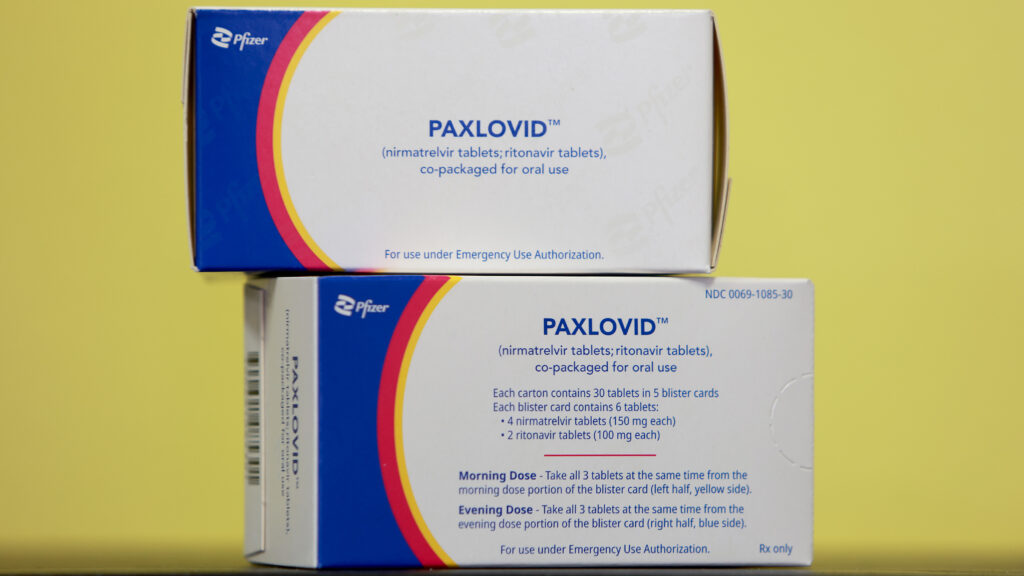The pandemic is over for most of the world. But for the 2.7% of adults in the United States who are immunocompromised, it isn’t.
I’m one of them. As we are all increasingly expected to return to pre-pandemic routines, including traveling abroad, those of us with a weakened immune system are attempting to be proactive — to plan ahead for possible illness. Our health care system is making that difficult.
advertisement
Paxlovid is an oral antiviral pill designed to prevent hospitalization for high-risk patients with Covid. It received emergency authorization from the Food and Drug Administration in December 2021, followed by full approval in May, and has become the go-to Covid treatment for those who are immunosuppressed. In initial clinical trials, it provided an 89% reduction in the risk of hospitalization and death in those unvaccinated for Covid. Other studies have since confirmed its effectiveness among those who are vaccinated. While a recent study conducted in a real-world population found Paxlovid to be less effective at preventing hospitalization than initially reported, it remains 84% effective at preventing death. For me and others with weakened immune systems, the loss of Evusheld — the only Covid antibody therapy once approved in the U.S. for those who are immunosuppressed — was eased by the promise of Paxlovid.
The FDA has increased access to this treatment for those with active symptoms. On July 6, 2022, the FDA revised the emergency use authorization for Paxlovid to allow state-licensed pharmacists to prescribe it directly for eligible patients with certain limitations. As of February 2023, proof of a positive test is no longer required to receive Paxlovid. However, physicians are still asked to confirm the patient’s active Covid symptoms upon prescription.
But there are limitations. As I discovered when I tried to prepare myself for a recent trip abroad, you cannot get Paxlovid to have on hand in case of Covid infection.
advertisement
Quite reasonably, U.S. prescriptions are not accepted at pharmacies within my destination. Should I have contracted Covid during my vacation and required Paxlovid, I would have needed to schedule an appointment with a local physician, request a prescription, and hope that all goes in my favor. Scheduling a timely appointment may not be possible, preventing initiation of treatment within the recommended five-day window. Furthermore, health care abroad may be costly.
So I asked my doctor, the one who prescribes my immunosuppressant for multiple sclerosis, “Can you prescribe Paxlovid for me to bring on vacation?” With regret, she said no — she can only prescribe it to someone who tests positive.
I called two local pharmacists and confirmed that despite the FDA lifting the need for a positive test and providing pharmacists with the ability to prescribe the drug, there were still limitations in prescribing the treatment to those without current symptoms.
During past flu seasons, my doctor has prescribed Tamiflu preventatively prior to traveling — even when I plan to remain in the United States. One of my medications — which slows the progression of my MS — also leads to a decreased level of B cells, leaving me more susceptible to severe viral illness. So knowing that Tamiflu is on hand if needed allows me to enjoy my vacation without worrying about getting sick. It gives me peace of mind and could be the difference between mild symptoms or hospitalization while away from home. Access to Paxlovid should be no different.
It seems some physicians are willing to bend the rules. In a social media group for those who are immunosuppressed, I discovered that some were receiving Paxlovid prior to travel. But physicians shouldn’t be in the position of having to go against FDA policy. The problem lies in the circumstances in which the medication can be prescribed. Those of us who are immunocompromised deserve to travel again like the rest of the world. Access to Paxlovid preemptively can allow us to travel more safely.
With every step of the pandemic, the immunosuppressed community has pushed against the grain. We were not among the first to receive the Covid vaccine. When Evusheld came out, those of us without the ability to mount a strong response to vaccines breathed a sigh of relief, but it was short-lived. When everyone else abandoned masks, we kept covering up, despite the sometimes hostile responses from others. Our one hope is that Paxlovid exists should we find ourselves infected with Covid. But until it’s available preemptively, it is not fully accessible to those who need it most.
Lindsay Karp is a freelance writer with a background in speech-language pathology. Her work has appeared in Parents, The Cut, Time, Salon, Newsweek, Insider, and other outlets.

